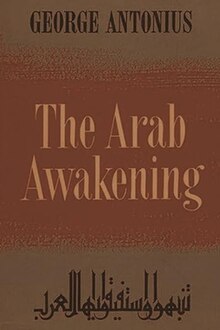
Faisal I bin Al-Hussein bin Ali al-Hashemi was King of Iraq from 23 August 1921 until his death in 1933. A member of the Hashemite family, he was a leader of the Great Arab Revolt during the First World War, and ruled as the unrecognized King of the Arab Kingdom of Syria from March to July 1920 when he was expelled by the French.

The Sykes–Picot Agreement was a 1916 secret treaty between the United Kingdom and France, with assent from the Russian Empire and the Kingdom of Italy, to define their mutually agreed spheres of influence and control in an eventual partition of the Ottoman Empire.
The McMahon–Hussein Correspondence is a series of letters that were exchanged during World War I in which the Government of the United Kingdom agreed to recognize Arab independence in a large region after the war in exchange for the Sharif of Mecca launching the Arab Revolt against the Ottoman Empire. The correspondence had a significant influence on Middle Eastern history during and after the war; a dispute over Palestine continued thereafter.

George Habib Antonius, CBE (hon.) was a Lebanese author and diplomat who settled in Jerusalem. He was one of the first historians of Arab nationalism. Born in Deir al Qamar to a Lebanese Eastern Orthodox Christian family, he served as a civil servant in the British Mandate of Palestine. His 1938 book The Arab Awakening generated an ongoing debate over such issues as the origins of Arab nationalism, the significance of the Arab Revolt of 1916, and the machinations behind the post-World War I political settlement in West Asia and North Africa. In the book, he raised concern about the fate of religious coexistence in Palestine in the face of Zionist colonization, while also recognizing the horror of anti-Jewish Nazism.
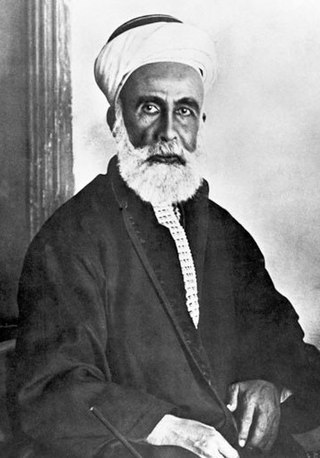
Hussein bin Ali al-Hashimi was an Arab leader from the Banu Qatadah branch of the Banu Hashim clan who was the Sharif and Emir of Mecca from 1908 and, after proclaiming the Great Arab Revolt against the Ottoman Empire, King of the Hejaz, even if he refused this title, from 1916 to 1924. He proclaimed himself Caliph after the abolition of the Ottoman Caliphate in 1924 and stayed in power until 1925 when Hejaz was invaded by the Saudis. His Caliphate was opposed by the British and French Empires, the Zionists and the Wahhabis alike. However, he received support from a large part of the Muslim population of that time and from Mehmed VI. He is usually considered as the father of modern pan-Arabism.

The Arab Revolt, also known as the Great Arab Revolt, was an armed uprising by the Hashemite-led Arabs of the Hejaz against the Ottoman Empire amidst the Middle Eastern theatre of World War I.

Butrus al-Bustani was a writer and scholar from present day Lebanon. He was a major figure in the Nahda, which began in Egypt in the late 19th century and spread to the Middle East.
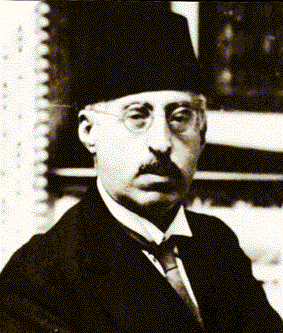
Shakib Arslan was an Arab writer, poet, historian, politician, and Emir in Lebanon. A prolific writer, he produced some 20 books and 2,000 articles, as well as two collections of poetry and a "prodigious correspondence". He was known as Amir al-Bayān due to his influential writings.

Elie Kedourie was a British historian of the Middle East. He wrote from a perspective that dissented from many points of view taken as orthodox in the field. From 1953 to 1990, he taught at the London School of Economics, where he became Professor of Politics. Kedourie was famous for his rejection of what he called the "Chatham House version" of history, which viewed the story of the modern Middle East as one of continuous victimisation at the hands of the West, and instead castigated left-wing Western intellectuals for what he regarded as a naively romantic view of Islam.

The Hashemite Kingdom of Hejaz was a state in the Hejaz region of Western Asia that included the western portion of the Arabian Peninsula that was ruled by the Hashemite dynasty. It was self-proclaimed as a kingdom in June 1916 during the First World War, to be independent from the Ottoman Empire, on the basis of an alliance with the British Empire to drive the Ottoman Army from the Arabian Peninsula during the Arab Revolt.
The Nahda, also referred to as the Arab Awakening or Enlightenment, was a cultural movement that flourished in Arab-populated regions of the Ottoman Empire, notably in Egypt, Lebanon, Syria, and Tunisia, during the second half of the 19th century and the early 20th century.

The partition of the Ottoman Empire was a geopolitical event that occurred after World War I and the occupation of Constantinople by British, French, and Italian troops in November 1918. The partitioning was planned in several agreements made by the Allied Powers early in the course of World War I, notably the Sykes–Picot Agreement, after the Ottoman Empire had joined Germany to form the Ottoman–German Alliance. The huge conglomeration of territories and peoples that formerly comprised the Ottoman Empire was divided into several new states. The Ottoman Empire had been the leading Islamic state in geopolitical, cultural and ideological terms. The partitioning of the Ottoman Empire after the war led to the domination of the Middle East by Western powers such as Britain and France, and saw the creation of the modern Arab world and the Republic of Turkey. Resistance to the influence of these powers came from the Turkish National Movement but did not become widespread in the other post-Ottoman states until the period of rapid decolonization after World War II.

The Sharifian Army, also known as the Arab Army, or the Hejazi Army was the military force behind the Arab Revolt which was a part of the Middle Eastern theatre of World War I. Sharif Hussein Ibn Ali of the Kingdom of Hejaz, who was proclaimed "Sultan of the Arabs" in 1916, led the Sharifian Army in a rebellion against the Ottoman Empire with the ultimate goal of uniting the Arab people under an independent government. Aided both financially and militarily by the British, Husayn's forces gradually moved north through the Hejaz and, fought alongside the British-controlled Egyptian Expeditionary Force, eventually capturing Damascus. Once there, members of the Sharifian Army set up a short-lived monarchy known as the Arab Kingdom of Syria led by Faisal, a son of Sharif Husayn.

Muhammad 'Izzat Darwaza was a Palestinian politician, historian, and educator from Nablus. Early in his career, he worked as an Ottoman bureaucrat in Palestine and Lebanon. Darwaza had long been a sympathizer of Arab nationalism and became an activist of that cause following the Arab Revolt against the Ottoman Empire in 1916, joining the nationalist al-Fatat society. As such, he campaigned for the union of Greater Syria and vehemently opposed Zionism and foreign mandates in Arab lands. From 1922 to 1927, he served as an educator and as the principal at the an-Najah National School where he implemented a pro-Arab nationalist educational system, promoting the ideas of Arab independence and unity. Darwaza's particular brand of Arab nationalism was influenced by Islam and his beliefs in Arab unity and the oneness of Arabic culture.
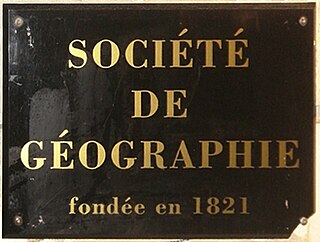
The Arab Congress of 1913 met in a hall of the French Geographical Society at 184 Boulevard Saint-Germain, Paris from June 18–23 in Paris to discuss more autonomy for the Arab people living under the Ottoman Empire. Furthermore The Arab National Congress, which was established by 25 official Arab Nationalists delegates, was convened to discuss desired reforms and to express their discontent with some Ottoman policies. It took place at a time of uncertainty and change in the Ottoman Empire: in the years leading up to World War I, the Empire had undergone a revolution (1908) and a coup (1913) by the Young Turks, and had been defeated in two wars against Italy and the Balkan states. The Arabs were agitating for more rights under the fading empire and early glimmers of Arab nationalism were emerging. A number of dissenting and reform-oriented groups formed in the region of Syria, Palestine, Constantinople, and Egypt. Under Zionist influence, Jewish immigration to Palestine was increasing, and England and France were expressing interest in the region, competing for spheres of influence.
Naguib Azoury or Negib Azoury was a Maronite Christian who espoused Arab nationalist ideals, most notably in the book Le réveil de la nation arabe.

Arab nationalism is a political ideology asserting that Arabs constitute a single nation. As a traditional nationalist ideology, it promotes Arab culture and civilization, celebrates Arab history, the Arabic language and Arabic literature. It often also calls for unification of Arab society. It bases itself on the premise that the people of the Arab world — from the Atlantic Ocean to the Arabian Sea — constitute one nation bound together by a common identity: ethnicity, language, culture, history, geography, and politics.
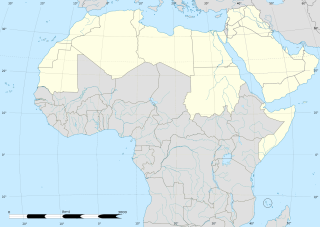
Pan-Arabism is a pan-nationalist ideology that espouses the unification of all Arab peoples in a single nation-state, consisting of all Arabic speaking lands of West Asia and North Africa from the Atlantic Ocean to the Arabian Sea, which is referred to as the Arab world. It is closely connected to Arab nationalism, which asserts the view that an Arabs constitute a single nation. It originated in the late 19th century among the Arab regions of the Ottoman Empire, and its popularity reached its height during the 1950s and 1960s. Advocates of pan-Arabism have often espoused Arab socialist principles and strongly opposed Western political involvement in the Arab world. It also sought to empower Arab states against outside forces by forming alliances and, to a lesser extent, economic co-operation.

Palestinian nationalism is the national movement of the Palestinian people that espouses self-determination and sovereignty over the region of Palestine. Originally formed in the early 20th century in opposition to Zionism, Palestinian nationalism later internationalized and attached itself to other ideologies; it has thus rejected the occupation of the Palestinian territories by the government of Israel since the 1967 Six-Day War. Palestinian nationalists often draw upon broader political traditions in their ideology, such as Arab socialism and ethnic nationalism in the context of Muslim religious nationalism. Related beliefs have shaped the government of Palestine and continue to do so.
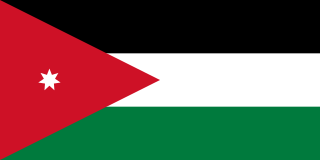
Jordanian nationalism is a nationalistic ideology that considers the Jordanian people a separate nation and strives to maintain Jordan as an independent nation-state. It emerged as one of three nationalist currents in the 1920s, and was opposed to both Palestinian nationalism present in the region, as well as the Hashemite Arab nationalism promoted by Abdullah I, the first ruler of the Emirate of Transjordan.
